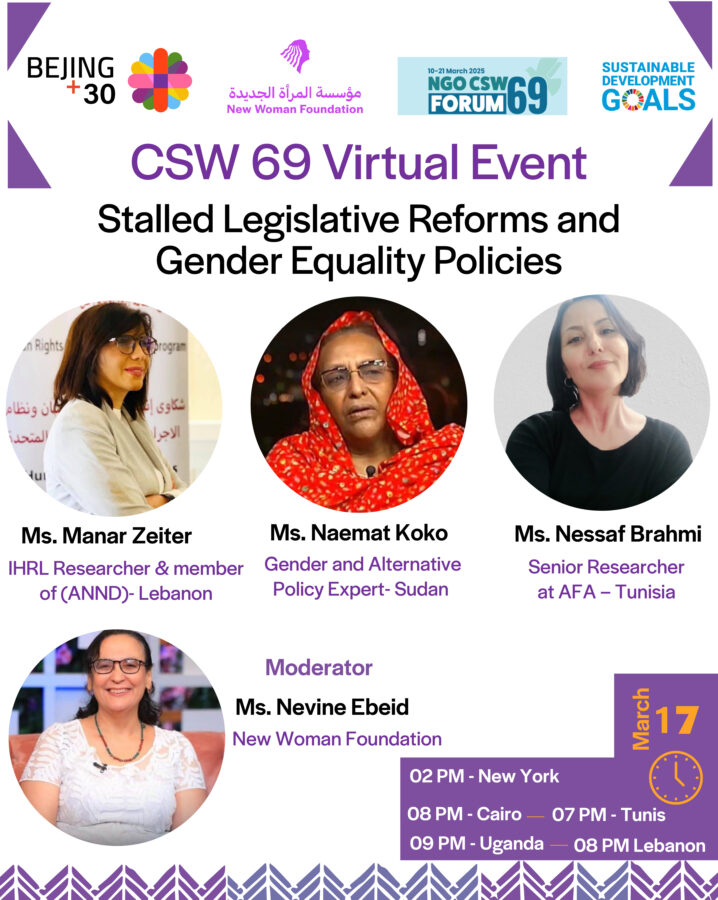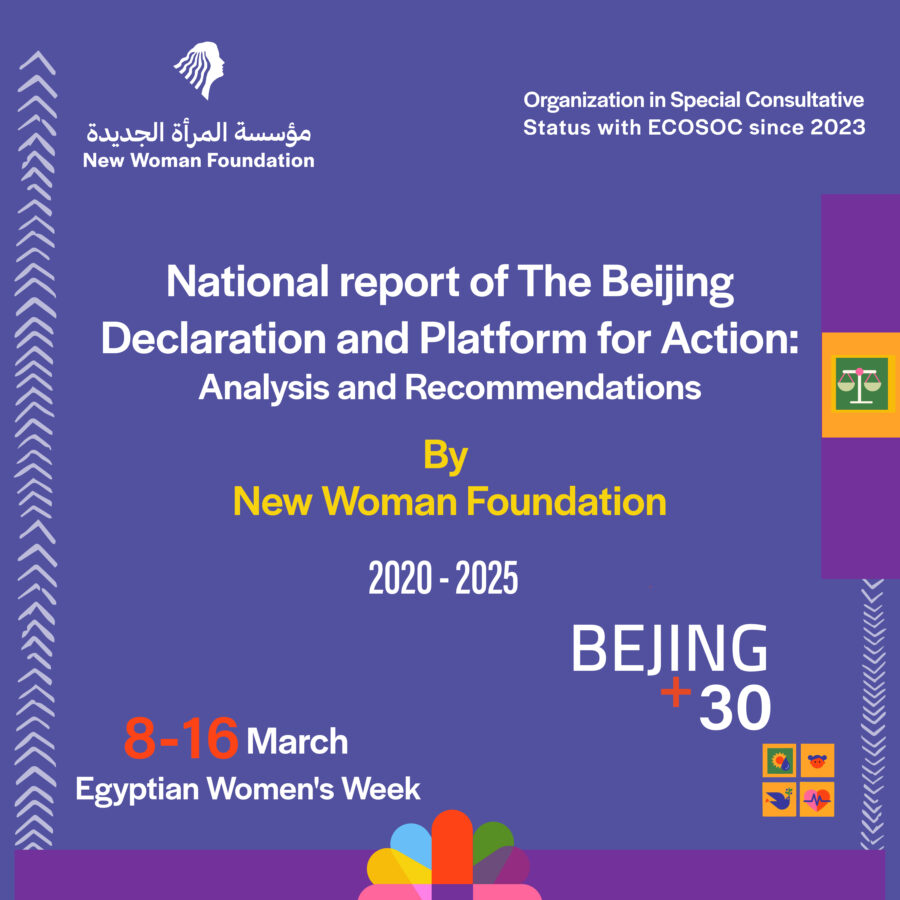- Contact Us
- 0020233382706
- nwrc@nwrcegypt.org
On sexual violence – Feminist testimonies from Egypt

Cairo – Finding Women at Work Should Not be this Hard
February 27, 2017
Statement: March 8th, 2017 .. Not a Celebration, But a Renewal of Vows of Struggle and Solidarity
March 8, 2017By Mada Masr: When I was asked to write a testimony on working in the women’s rights and gender field, I wanted to talk about what has been shrouded in silence within so-called progressive circles. I wanted to talk about the emotionally and physically painful traps set in patterns of relations that we fall into without either being aware of it or knowing how to seek help. I wanted to talk about how most of the people in progressive circles pride themselves on sexual openness, but the matter of abortion cannot be talked about openly and remains taboo.
But I remembered, or was reminded, that the objective of writing this testimony was to attempt to answer the questions: Why do we continue doing what we do despite the heaviness of defeat? Why don’t we give up? From where do we draw the inspiration to continue?
When I look at the experience of my generation, I think about how we have witnessed the transformation of violence against women: the waves of sexual harassment and violence during our student years at the beginning of the millennium that developed into seasonal collective assaults during feasts and gatherings. And I think about how this violent epidemic was accompanied by official and social denial, driving many of us to join feminist activism before the January 2011 revolution.
We were eyewitnesses to the horror of the escalation of this violence: the group rapes and assaults that occurred from 2011 to 2013. With hundreds of others, we organized to resist the spread of this violence. We saw its partial and gradual decline and the change in women and girls’ reactions. We also saw a change in state’s attitude toward sexual harassment and violence.
It seems to be a beautiful success story. But reality was much more complicated and painful, and it was not easy at all. A heavy price was paid to bring this change about, a price paid in the bodies and blood of women, in the long hours spent by young women and men involved in combating sexual violence who withstood serious physical and psychological injury in squares when trying to rescue women from circles of horror, when accompanying them in ambulances, when negotiating with doctors in hospitals to transfer them to safe houses and provide them with access to psychiatrists.
The events of the demonstrations that occurred on the second anniversary of the revolution are vivid in my memory. I remember the throngs of men trying to break the iron gate of the building sheltering us in an attempt to reach a woman we had rescued from them. I remember the woman who arrived soaked in blood at the flat we used as our headquarters to receive calls and distribute safety bags. I remember Andrew, one of the members of the intervention team, refusing to rest and insisting on returning to Tahrir Square, despite having suffered a foot injury when he was clubbed there earlier. I remember the bravery of Lobna Darwish, who saved a 19-year-old girl from a violent attack at the entrance of Mohamed Mahmoud Street. She was dazed, afterward, describing the brutality of the violence.
I also remember the cruelty of the assaults that led us to ask intervention groups to withdraw from the square, and that we didn’t breathe a sigh of relief until the square had been completely emptied after the Interior Ministry launched a harsh attack and those in the square were heavily hit by tear gas.
Amid that madness, we were not aware that we were making progress. When he asked volunteers and survivors to send signed or anonymous testimonies, Leil Zahra did not know that they would shift the balance. When they were writing their testimonies that were published daily on the websites of various groups and organizations, Salma, Yasmin, Mostafa and others did not realize how the strength of their voices was putting an end to long-lasting social denial.
We were extremely angry when the Shura Council issued statements asserting that the women protesting were responsible for what had happened to them. But we were unaware at the time that this was the first time an official state institution had acknowledged that these incidents had happened, even if it was an acknowledgement that came in the form of blaming the victim. When the law changed in May 2014 and sexual harassment was mentioned for the first time in Egypt’s laws and thereby replaced the term “injury to modesty,” we were still recovering from the gravity of the sexual assaults that took place in June 2013 and the massacres that had taken place in the summer of the same year.
But our greatest success cannot be reduced to a legal amendment of the provision concerning harassment, to the introduction of a national strategy to combat violence or a unit in the Interior Ministry to address violence against women. Our most important success was removing social stigmas from women who had been subjected to violence, allowing them to talk publicly about what they suffer in Egypt’s streets, on public transportation, workplaces and parks. And in turn, we stigmatized the act of harassment and those that harass to reduce, to some extent, their boastful pride in their transgressions.
We may forget what we achieved in the midst of the terrible defeat of the revolution. But if we do forget, our feet will remind us when they walk through streets that were once too dangerous to even think to walk through, as will our ears, which were once bombarded by vulgarities, the detailed descriptions of our body parts, and the ugly fantasies of those that harassed us.
We spent part of our lifetime to make an opening that would allow a ray of light for the next generations. We were lucky enough to witness this.



